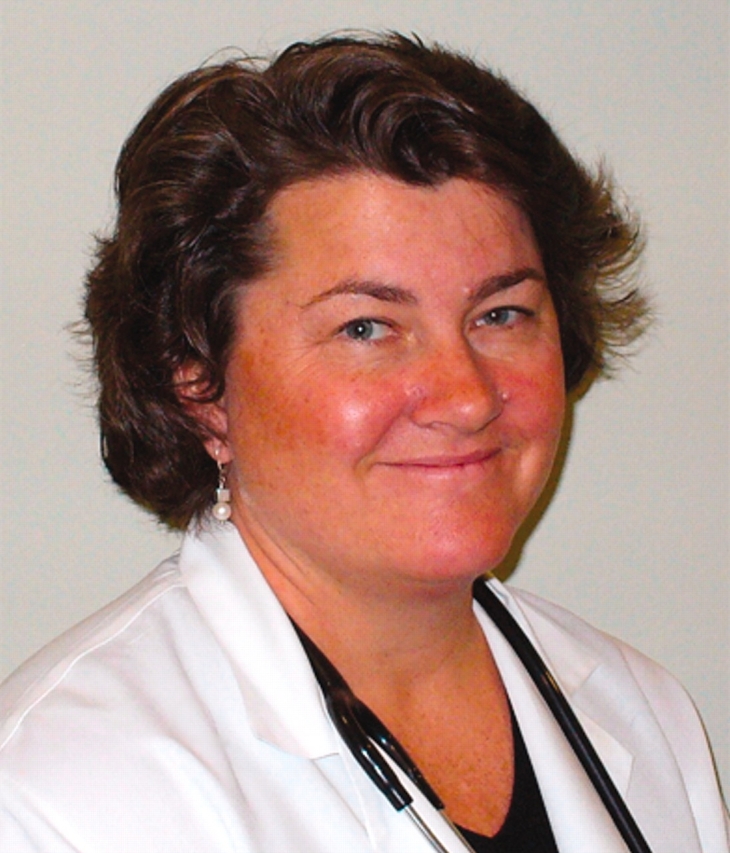Figure 1.

Therese M. Mulvey, MD
Perhaps more than any other medical specialty, oncology relies on an evidence-based approach to treatment. If we are to maintain our commitment to evidence as the guide for treatment, we should be concerned about several recent trends.
Most notably, my attention has been drawn to a recent decision of the U.S. Court of Appeals in Washington, DC, in a suit brought against the US Food and Drug Administration (FDA) by a group called the Abigail Alliance for Better Access to Developmental Drugs. In a May 2, 2006, decision, the Court of Appeals ruled that a terminally ill patient with no government-approved treatment option has a constitutional right to access investigational drugs that have completed phase I studies.
This decision represents a direct frontal assault on evidence-based medicine, as it would theoretically expose patients to often toxic therapies with very little knowledge about safety, and probably none about efficacy. Nothing in the decision says that a pharmaceutical company has to cooperate by making their unapproved products available to patients after phase I, thus potentially exposing themselves to liability for ensuing injuries. Furthermore, nothing in the decision says that, as a physician, I have to prescribe such products for my patients.
Word about the Abigail Alliance decision spread rapidly over the Internet, however, and patients are pressing their oncologists to take advantage of this new “opportunity.” It is important that oncologists be prepared to explain to their patients why such access might not be in their interest, even if there are no other treatment options.
A better approach for such patients would be the numerous “expanded access” programs that pharmaceutical companies increasingly offer to patients who are not eligible for clinical trials. ASCO recently joined the National Coalition for Cancer Survivorship (NCCS) in submitting a petition to the FDA seeking formalization of these programs to ensure that they are well designed and competently conducted for the benefit of patients. These expanded access programs may help some patients, and, unlike the Court of Appeals decision, they should not jeopardize participation in ongoing clinical trials.
One of the troubling aspects of the Abigail Alliance decision is that it could threaten the reimbursement system that has evolved over time to meet the special needs of evidence-based oncology. It is well known that off-label uses of FDA-approved drugs are particularly important in oncology. Somewhere between 50% and 80% of cancer chemotherapy involves one or more off-label uses of approved drugs, and, if third-party payers did not cover those uses, quality cancer care would suffer.
ASCO has been aggressive in its support of reimbursement for medically appropriate (ie, evidence-based) off-label drug use. In conjunction with patient advocate allies, ASCO persuaded the US Congress to require the Medicare program to cover off-label uses when supported by references in specified medical compendia. This law, enacted in 1993, has been a model for similar efforts in many state legislatures, and it is fair to say that this evidence-based approach to reimbursement is now the standard in the private sector as well as Medicare and Medicaid.
We should not be lulled into complacency over our current status. It is not difficult to imagine that payers might offer substantial resistance to covering costly cancer drugs—for either labeled or off-label uses—if they begin to be approved on the basis of no show of efficacy and little if any show of safety. And the higher the cost of cancer drugs and as the cost of their promotion increases, the more likely payers will be to resist.
Our current good fortune with respect to reimbursement for evidence-based chemotherapy is a result of careful, balanced, and factual advocacy. We should not place that progress in jeopardy.
Therese M. Mulvey, MD, is a community oncologist practicing in Dorchester and Quincy, Massachusetts. She is immediate past president of the Massachusetts Society of Clinical Oncologist, and also serves as Associate Editor for the Journal of Oncology Practice.


